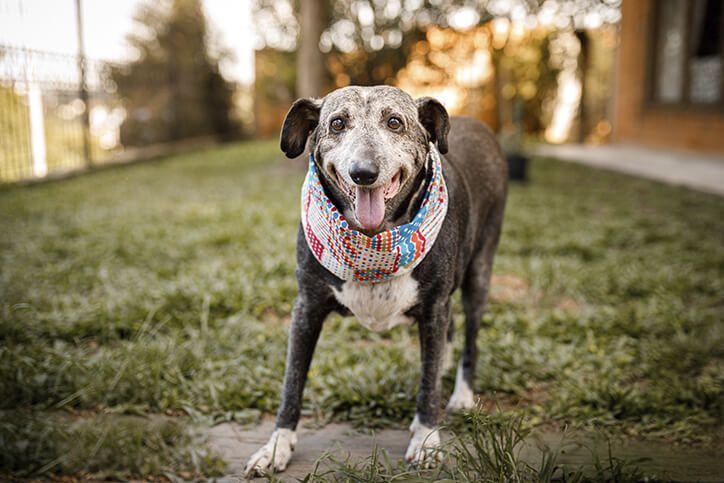Caring for Senior Pets in Chicago, IL

Whether you’ve recently adopted a senior pet or watched your puppy grow and age, we know that there are many benefits and challenges of having an older pet At West Loop Veterinary Care we understand the special considerations our senior patients require to ensure that they live out their mature years with good health and happiness.

Defining a Senior Pet
A senior dog or cat is one who is around seven years or older, but the size and breed of the pet figure into this determination. Smaller dogs mature more slowly, live longer, and become seniors later in life than larger dogs.
West Loop Veterinary Care Considerations for Senior Pets
Whether you already have an elder pet or are considering bringing one into your life, West Loop Veterinary Care offers special care for our senior patients, including:
- Bi-annual Preventative Care Exams – – While young pets only need about one annual physical a year, we recommend twice a year visits for senior pets. This allows us to make sure we are monitoring the life adjustments and ailments that are common in senior pets.
- 45-minute Exams – Typically, our veterinarians dedicate about 30 minutes to seeing an adult pet. However, since seniors often have many unique needs, we schedule 45 minutes to thoroughly examine a senior patient.
So, if you already have a sweet senior in your home, make sure you are taking advantage of all that we can offer them! Please give us a call at 312-421-2275, or request an appointment today!
Benefits to Adopting a Senior Pet
Animal shelters are filled with healthy and active senior pets that need good homes. If you’re thinking about adopting a dog or cat from your local shelter, seniors can make great pets for several reasons.
1. Adopting a Senior Pet Offers a Second Chance
Unfortunately, many shelters are overcrowded and senior pets are among the first to be euthanized if they aren’t adopted within a certain time frame. By adopting a senior dog or cat, you can provide an older companion with a second chance at life.
2. Senior Pets are Often Surrendered by no Fault of their Own
Many older dogs or cats were once owned and loved by someone, and for whatever reasons, they were given up or left behind in a shelter. Senior pets become homeless for many reasons including the serious illness or death of a family member or other significant life change. Often, they are excellent companions who have, through no fault of their own, found themselves in a shelter.
3. Senior Pets Can Be Great, Mellow Companions
Senior pets often make great companions in smaller homes or for owners who live less active lives. They live at a slower and quieter pace. Unlike puppies and kittens who can be bundles of energy, an adult pet has grown out of the active, troublesome stage and has already established a temperament that will give you an idea of how he will fit into your family. Senior pets also have all their adult teeth, resulting in less chewing and destruction to your home. Also, some older pets tend to do well with young children as they have a lower energy level and may have been exposed to children in their past homes.
4. Senior Pets Usually Have Some Training
Most older pets are already house trained or need very little training to adapt to their new homes. Senior dogs and cats need is time to adjust to the routine of your household. Older dogs can be trained, and they are just as smart as younger ones.
5. Senior Pets Have Developed Their Temperament and Personality
Another benefit of adopting a senior pet is that a senior dog or cat has grown both physically and mentally, and although there might be some changes in behavior seen at a shelter, you will have a pretty good idea about the physical characteristics, temperament, and personality of a senior pet you’re adopting. By adopting a senior pet you can have a good idea of your next best friend and how well they are suited to your family, your home, and your lifestyle.
6. Some Senior Pets Have Reduced Veterinary Needs
Depending on the pet’s health, seniors do not necessarily need more veterinary care than a puppy or kitten. Older cats and dogs are usually already spayed or neutered, up to date on their vaccinations, and are less susceptible to diseases and viruses that pose a danger to puppies and kittens.
Senior pets can be wonderful companions, and if you want to open your heart and home to an older pet, you will no doubt enjoy years of wonderful companionship and fun. If you have any questions about your senior pet, please contact West Loop Veterinary Care at 312-421-2275 or request an appointment today!
West Loop:
(312) 421-2275
Streeterville:
(312) 766-5959
